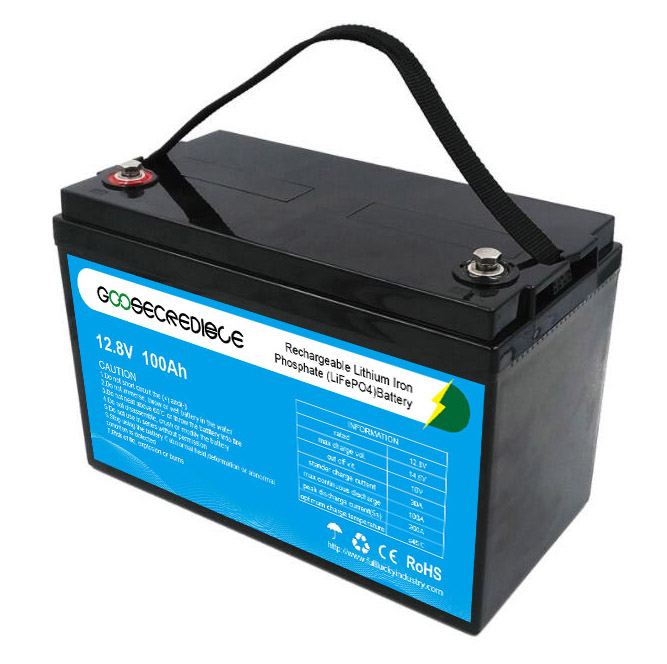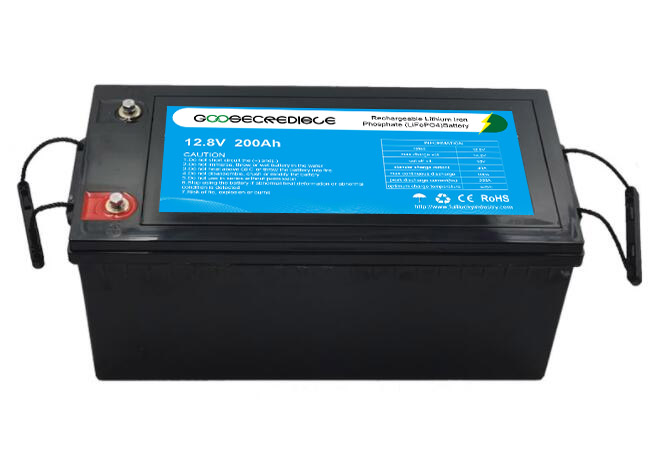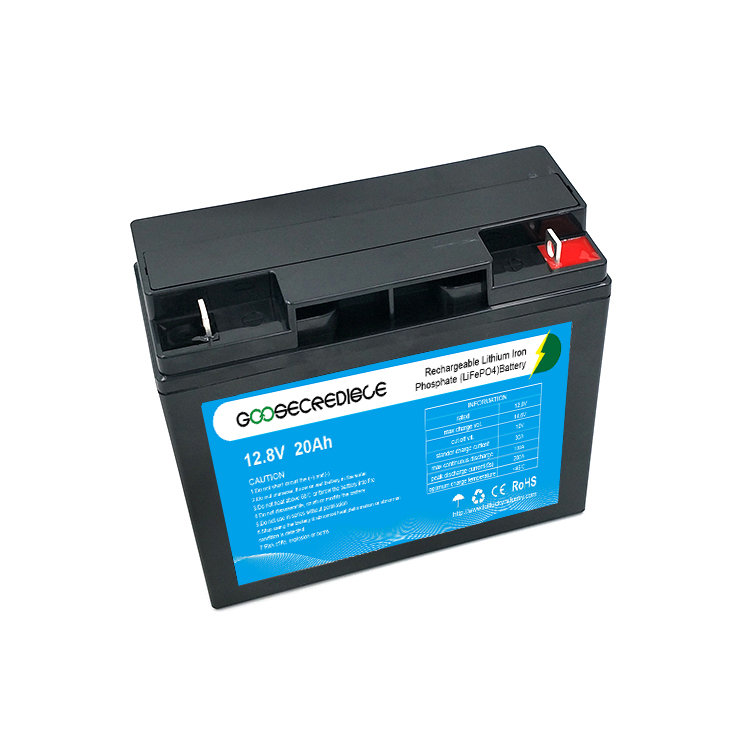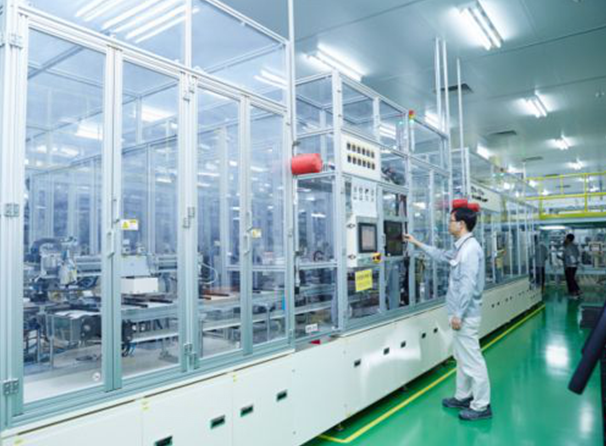How to Choose the Best Lifepo4 Battery Supplier for Your Business Needs
Lithium Iron Phosphate (LiFePO4) batteries are becoming increasingly popular in various industries, from electric vehicles to renewable energy systems. With the growing demand for this technology, choosing the right supplier becomes crucial. A reliable supplier not only ensures high-quality products but also provides timely delivery and competitive pricing. Here are some factors to consider when choosing the best LiFePO4 battery supplier for your business needs.
Quality Control Standards
The quality of LiFePO4 batteries depends on the manufacturing process, and a reliable supplier must have strict quality control standards in place. Look for suppliers who have certifications such as ISO 9001, ISO 14001, or UL. These certifications ensure that the supplier follows specific quality control protocols, and their products meet international standards.
Range of Products
Different businesses have varying needs, and a good LiFePO4 battery supplier should offer a wide range of products to cater to these needs. Whether you need batteries for electric vehicles, solar energy systems, or backup power, the supplier should have a variety of options to choose from. Also, ensure that the supplier can provide customized solutions to meet your specific requirements.
Manufacturing Capacity
The supplier’s manufacturing capacity is another crucial factor to consider. A reliable supplier should have a large production capacity to meet your needs promptly. Also, they should have advanced manufacturing equipment and processes to ensure consistent quality.
Pricing and Payment Terms
Pricing is a critical factor when choosing a LiFePO4 battery supplier, but it should not be the only consideration. Look for suppliers who offer competitive prices without compromising on quality. Additionally, the supplier should have flexible payment terms that suit your business’s financial needs.
Delivery Time and Logistics
The supplier’s delivery time and logistics play a significant role in ensuring that your business operations run smoothly. Look for suppliers who have efficient delivery systems and can provide timely delivery. Additionally, they should have reliable logistics partners to ensure that the products reach you safely and on time.
After-Sales Service
A reliable LiFePO4 battery supplier should provide excellent after-sales service. This includes technical support, product warranty, and replacement options. Ensure that the supplier has a responsive customer service team that can address any issues promptly.
Reputation and Customer Reviews
The supplier’s reputation and customer reviews can give you an idea of their level of customer satisfaction. Look for suppliers who have a good reputation in the industry and positive customer reviews. You can check online forums, social media platforms, and review sites to get feedback from other customers.
In conclusion, choosing the right LiFePO4 battery supplier is crucial to the success of your business operations. By considering factors such as quality control standards, range of products, manufacturing capacity, pricing, delivery time, after-sales service, and reputation, you can make an informed decision and find a reliable supplier that meets your business needs.
Time: 2023-6-2
As our world becomes more and more dependent on technology, the need for sustainable and efficient energy storage solutions continues to grow. One promising solution is the Lithium Iron Phosphate (LiFePO4) battery pack, which offers many benefits over traditional lead-acid batteries as well as other lithium-ion battery chemistries. LiFePO4 batteries are a type of lithium-ion battery that use iron phosphate as the cathode material. Compared to lead-acid batteries, LiFePO4 batteries have a higher energy density, longer cycle life, and faster recharge times. They are also safer and more environmentally friendly since they do not contain toxic lead or acid. One of the primary advantages of LiFePO4 batteries is their high energy density. This means they can store more energy in a smaller space, making them ideal for applications where space is limited, such as in electric vehicles. They also have a longer cycle life than lead-acid batteries, meaning they can be charged and discharged many more times without significantly degrading their performance. This makes them a cost-effective solution in the long run, as they require less frequent replacement. Another benefit of LiFePO4 batteries is their ability to charge quickly. Traditional lead-acid batteries can take a long time to charge, especially if they are deeply discharged. LiFePO4 batteries, on the other hand, can be charged much faster, reducing downtime and increasing productivity. They also have a lower self-discharge rate, meaning they can hold their charge for longer periods of time without needing to be recharged. LiFePO4 batteries...
Time: 2023-4-17
Introduction In recent years, there has been a growing interest in using lithium iron phosphate (LiFePO4) battery technology as an alternative to traditional lead-acid batteries. This is due to the many advantages that LiFePO4 batteries offer, including improved energy density, longer lifespan, and a more environmentally friendly design. In this article, we will explore the advantages of LiFePO4 battery technology in more detail. Advantage 1: Improved Energy Density One of the most significant advantages of LiFePO4 battery technology is its improved energy density. When compared to traditional lead-acid batteries, LiFePO4 batteries can store more energy in a smaller and lighter package. This is because LiFePO4 batteries have a higher energy density, meaning they can store more energy per unit of volume or weight. As a result, LiFePO4 batteries are often used in applications where space and weight are critical factors, such as electric vehicles, solar energy storage systems, and portable electronics. Advantage 2: Longer Lifespan Another significant advantage of LiFePO4 battery technology is its longer lifespan. LiFePO4 batteries can last up to 10 times longer than traditional lead-acid batteries, making them a more cost-effective solution in the long run. This is because LiFePO4 batteries have a much lower rate of self-discharge, and they can endure a higher number of charge and discharge cycles before their performance begins to degrade. As a result, LiFePO4 batteries are suitable for applications where a long lifespan is critical, such as backup power systems and renewable energy storage. Advantage 3: More Environmentally...
Time: 2023-6-21
In recent years, battery technology has rapidly advanced, leading to the industrialization of battery production and storage. This transformation is poised to revolutionize the way we generate, store, and use energy. As the world strives to reduce carbon emissions and transition to renewable energy sources, battery technology is playing a critical role in enabling this transformation. The industrialization of battery production has led to significant improvements in energy density, charging time, and lifespan. Lithium-ion batteries, which are widely used in portable electronics and electric vehicles, have improved by leaps and bounds over the past decade. The energy density of lithium-ion batteries has increased by about 3-5% per year, while their cost has fallen by more than 80% since 2010. Today, electric vehicles can travel hundreds of miles on a single charge, and their batteries can be charged in a matter of minutes. The rise of battery industrialization has also led to the development of new battery chemistries and form factors. Solid-state batteries, which use a solid electrolyte instead of a liquid one, promise to offer higher energy density, faster charging times, and improved safety. Researchers are also working on developing new chemistries that use abundant and inexpensive materials, such as sodium, magnesium, and zinc, instead of the costly and scarce materials used in lithium-ion batteries. These new chemistries could significantly reduce the cost of batteries and make them more sustainable. Another area where battery industrialization is transforming the future of energy storage is in grid-scale applications. Large-scale...
Time: 2023-7-7
When it comes to boating, having a reliable and efficient battery is crucial. Whether you are planning a relaxing day on the water or embarking on an adventurous fishing trip, a marine starting battery can ensure that your watercraft is ready to go when you need it most. In this article, we will explore the benefits of using a marine starting battery and why it is a wise investment for any boating enthusiast. First and foremost, a marine starting battery is specifically designed to provide a strong burst of power to start your engine. Unlike regular automotive batteries, marine batteries are built to withstand the harsh marine environment, including vibrations, constant movement, and exposure to water. This means that you can rely on your battery to start your watercraft, even in challenging conditions. One of the key advantages of a marine starting battery is its ability to deliver a high cranking power. This means that it can provide a significant amount of power in a short amount of time, which is crucial for starting your engine. Marine engines often require a higher cranking power due to their larger size and the additional electrical loads they may have, such as lights, GPS systems, and fish finders. A marine starting battery ensures that you have enough power to start your engine and operate these additional devices without any issues. Another benefit of a marine starting battery is its deep cycling capability. Unlike regular batteries that are designed to provide...
Time: 2023-6-3
As technology advances, more and more electronic devices are being introduced into our daily lives. With the increasing demand for these devices, the need for more efficient and long-lasting batteries has become a priority. Lithium iron phosphate (LiFePO4) batteries have gained popularity due to their high energy density, low self-discharge rate, and long cycle life. In this article, we will delve deeper into the lifespan of LiFePO4 batteries and how to ensure their longevity. Understanding the Chemistry of LiFePO4 Batteries LiFePO4 batteries are a type of rechargeable lithium-ion battery that uses lithium iron phosphate as the cathode material. The anode is made of carbon, while the electrolyte is a lithium salt. When the battery is charged, lithium ions move from the cathode to the anode, creating a flow of electrons that can be used to power electronic devices. During discharge, the process is reversed, and the lithium ions move back to the cathode. One of the key advantages of LiFePO4 batteries is their stability. Unlike other lithium-ion batteries, they are less likely to overheat or catch fire due to their lower energy density. They also have a longer cycle life compared to other types of lithium-ion batteries, which means they can be charged and discharged more times before their capacity starts to degrade. Factors Affecting the Lifespan of LiFePO4 Batteries While LiFePO4 batteries are known for their longevity, their lifespan can still be affected by various factors. Here are some of the most important ones...
Time: 2023-5-12
Lithium Iron Phosphate (LiFePO4) batteries are becoming increasingly popular due to their high energy density, long cycle life, and improved safety compared to other lithium-ion batteries. In this article, we will take a closer look at LiFePO4 batteries, their characteristics, advantages, and usage. Chemical Composition LiFePO4 batteries are made up of three main components: a cathode, an anode, and an electrolyte. The cathode is made up of lithium iron phosphate, which is a stable and non-toxic material. The anode is typically made up of graphite, which is also a stable and non-toxic material. The electrolyte is a lithium salt in an organic solvent, which allows the flow of ions between the cathode and anode. Voltage and Capacity LiFePO4 batteries have a nominal voltage of 3.2 volts per cell, which is lower than other lithium-ion batteries. This means that more cells are required to achieve the same voltage as other batteries. However, LiFePO4 batteries have a higher energy density, which means they can store more energy per unit of volume or weight. The capacity of a LiFePO4 battery is typically measured in ampere-hours (Ah), which represents the amount of current the battery can deliver over a certain period of time. Cycle Life LiFePO4 batteries have a long cycle life, which means they can be charged and discharged many times without losing capacity. The cycle life of a LiFePO4 battery depends on several factors, including the depth of discharge, the charging rate, and the temperature. LiFePO4...
Time: 2023-10-24
In today's fast-paced world, we rely heavily on electronic devices for work, entertainment, and communication. From smartphones and laptops to electric vehicles and renewable energy systems, the demand for reliable and efficient power sources has never been greater. One such power solution that has gained significant attention is the 100Ah LiFePO4 lithium battery. LiFePO4 lithium batteries, also known as lithium iron phosphate batteries, have become increasingly popular due to their numerous advantages over traditional lead-acid batteries. These batteries offer a higher energy density, longer lifespan, faster charging capability, and enhanced safety features. With a 100Ah capacity, they can provide a substantial amount of power to various devices and applications. One of the primary advantages of a 100Ah LiFePO4 lithium battery is its high energy density. Compared to lead-acid batteries, LiFePO4 batteries can store more energy in a smaller and lighter package. This makes them ideal for portable devices such as smartphones and tablets, where space and weight are crucial factors. With a 100Ah capacity, these batteries can power multiple devices simultaneously or provide extended usage time for larger devices. Moreover, LiFePO4 lithium batteries have an impressive lifespan compared to other battery chemistries. They can endure hundreds, if not thousands, of charge and discharge cycles without significant capacity loss. This longevity makes them a cost-effective choice in the long run, as they do not require frequent replacements. Additionally, the self-discharge rate of LiFePO4 batteries is significantly lower than that of lead-acid batteries, allowing for prolonged storage periods without...
Time: 2023-4-28
Introduction LiFePO4 batteries have gained immense popularity over the years due to their advanced features and benefits. These batteries are known for their high efficiency, long-lasting power, and excellent performance. They are ideal for various applications, including electric vehicles, solar energy storage, and portable power supplies. In this article, we will discuss in detail the benefits of using 12V LiFePO4 batteries. Efficient and Powerful 12V LiFePO4 batteries are highly efficient and powerful. They offer a high energy density and can store more energy compared to other battery technologies. This means that they will last longer and provide more power to your device. Additionally, these batteries have a low self-discharge rate, which means that they can hold their charge for longer periods. Therefore, you don\'t have to worry about recharging them frequently. Long-Lasting Another significant benefit of 12V LiFePO4 batteries is that they are long-lasting. They have a longer lifespan compared to traditional lead-acid batteries. This means that you will not have to replace them as often, saving you money in the long run. Additionally, LiFePO4 batteries can handle a higher number of charge cycles, making them more durable and reliable. Lightweight and Compact 12V LiFePO4 batteries are lightweight and compact, making them ideal for portable applications. They can be easily carried around, making them perfect for camping, boating, and other outdoor activities. Additionally, they can be used in electric vehicles, making the vehicle more lightweight and efficient. Therefore, you can get more mileage out of...





















